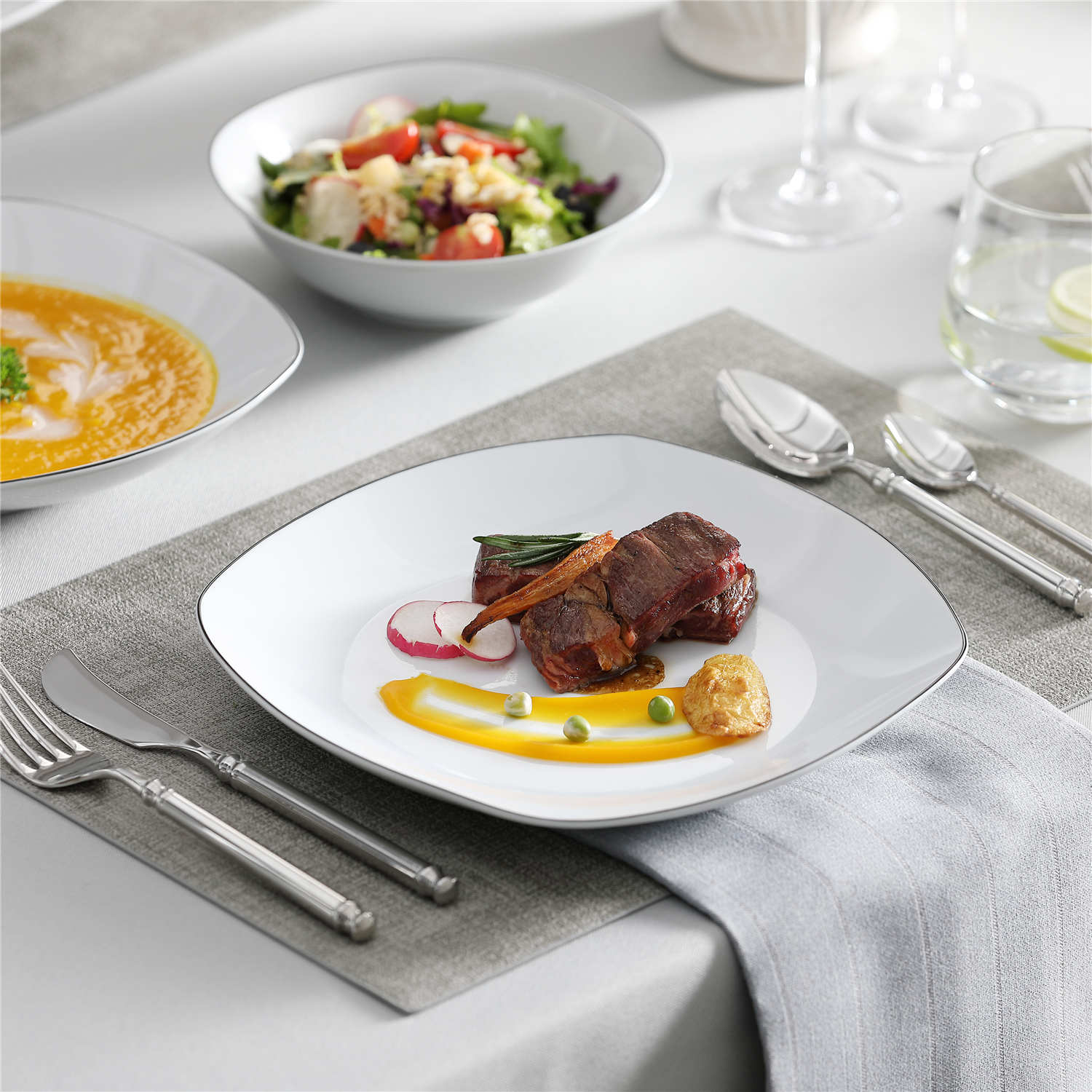Porcelain dinnerware has long been a staple in households around the world, admired for its elegance, durability, and versatility. However, not all porcelain is created equal. In this post, we will be decoding the different types of porcelain used in dinnerware production, providing you with a comprehensive understanding of the various types and their unique characteristics.

Understanding Porcelain: A Brief Overview
Porcelain, often referred to as "fine china," is a type of ceramic material made by heating materials, generally including kaolin, in a kiln to high temperatures. The result is a hard, white, translucent material that is both beautiful and functional. But within the realm of porcelain, there are several distinct types, each with its own set of properties and uses.
Bone China: The Pinnacle of Elegance
Bone china is perhaps the most revered type of porcelain, known for its exceptional whiteness, translucency, and strength. It is made by adding bone ash to the traditional porcelain mixture, which gives it a unique composition. This type of porcelain is highly sought after for its delicate appearance and is often used in high-end dinnerware.
For example, bone china plates are perfect for formal dining occasions, offering a touch of sophistication and luxury. Despite its delicate appearance, bone china is surprisingly durable and resistant to chipping, making it a practical choice for everyday use as well.
Hard-Paste Porcelain: The Classic Choice
Hard-paste porcelain, also known as true porcelain, originated in China and is made from a mixture of kaolin and petuntse (a type of feldspar). This type of porcelain is fired at very high temperatures, resulting in a dense, hard, and highly durable material.
Hard-paste porcelain is commonly used in both decorative and functional dinnerware. For instance, many traditional Chinese and European dinnerware sets are made from hard-paste porcelain, prized for their durability and timeless beauty.
Soft-Paste Porcelain: The European Innovation
Soft-paste porcelain was developed in Europe as an attempt to replicate the qualities of hard-paste porcelain before the true formula was discovered. It is made from a mixture of clay and glassy substances, resulting in a softer, more porous material.
While not as strong as hard-paste or bone china, soft-paste porcelain has its own charm and is often used for decorative pieces and less frequently used dinnerware. For example, many antique European porcelain figurines and decorative plates are made from soft-paste porcelain.
New Bone China: The Modern Marvel
New bone china is a contemporary innovation that combines the best qualities of bone china and hard-paste porcelain. It is made using synthetic bone ash, which makes it more environmentally friendly while retaining the strength and translucency of traditional bone china.
This type of porcelain is becoming increasingly popular for modern dinnerware sets, offering a balance of elegance, durability, and sustainability. For instance, new bone china dinnerware is perfect for both everyday use and special occasions, providing a versatile and stylish option for any table setting.
Conclusion: Choosing the Right Porcelain for Your Needs
Decoding the different types of porcelain used in dinnerware production reveals a fascinating array of options, each with its own unique qualities and applications. Whether you prefer the timeless elegance of bone china, the classic durability of hard-paste porcelain, the historical charm of soft-paste porcelain, or the modern innovation of new bone china, there is a type of porcelain to suit every taste and need.
By understanding the characteristics of each type, you can make an informed decision when selecting porcelain dinnerware, ensuring that your table is set with pieces that are not only beautiful but also perfectly suited to your lifestyle.








